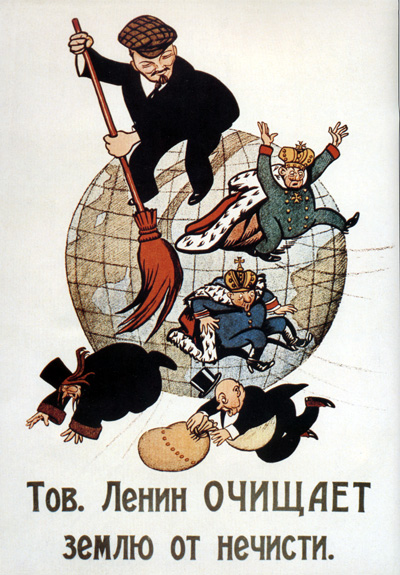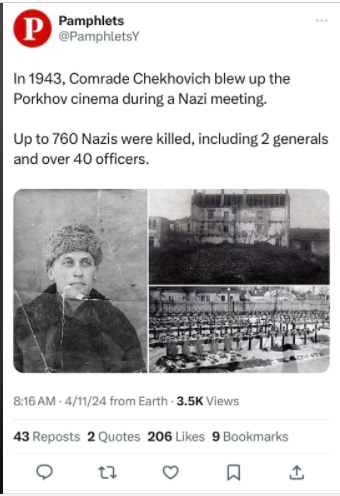this post was submitted on 11 Apr 2024
233 points (99.6% liked)
history
23025 readers
1 users here now
Welcome to c/history! History is written by the posters.
c/history is a comm for discussion about history so feel free to talk and post about articles, books, videos, events or historical figures you find interesting
Please read the Hexbear Code of Conduct and remember...we're all comrades here.
Do not post reactionary or imperialist takes (criticism is fine, but don't pull nonsense from whatever chud author is out there).
When sharing historical facts, remember to provide credible souces or citations.
Historical Disinformation will be removed

founded 5 years ago
MODERATORS
you are viewing a single comment's thread
view the rest of the comments
view the rest of the comments

Just my (objectively correct and spiritually attuned) take:
QT is acknowledging the tension in his own work, and the superficial similarity between his work and (lesser) violent, exploitative, and propagandist works. He understands that, there's no view from nowhere, there's not a way to distinguish between righteous violence and evil. There can always be a rationalization. (Is it really that surprising that the kind of people who had raves outside of Gaza liked the Zone of Interest until Glazer shoved their faces in it? Is there any amount of interpretive theory, of ""media literacy"" that can dictate how one ought to identify with a film, what values they should hold? No.)
But, while holding out space to reflect on this tension, on the way home from the movies (which we should do, of course, so we do not become Nazis), it's also an unironic celebration of righteous violence. The film is thrilling, and the violence is cathartic, of course because the enemy is Nazi-coded, but more than that, it's absolutely electric, this subversion of expectations, watching history rewritten and justice being meted out. And of course, this all happens, textually through Art-- Hitler dies at the movies, burned to death on film stock. Art corrects the worst historical injustice. We're watching Art acknowledge it's own power, and we're giddy (You're watching Hitler burn to death, against all expectations, you're watching the redemptive, reflexive power of Art, and you're laughing?). Just before the film ends QT looks through the eyes of Pitt and tells the audience that this was his "masterpiece" and you know it's true.